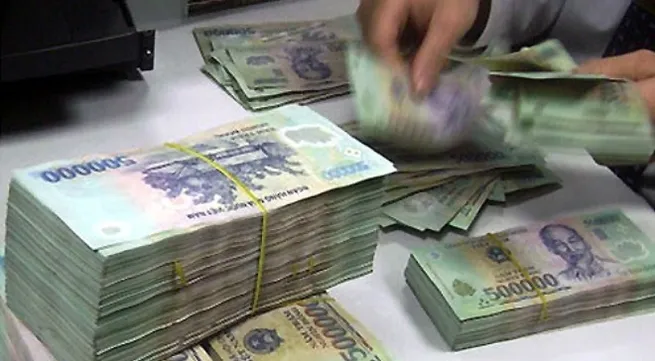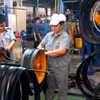Better policies, more remittances
by ,http://vietnamnews.vn/economy/343743/better-policies-more-remittances.html03 October 2016 Last updated at 10:29 AM

HÀ NỘI – Việt Nam needs more comprehensive policies to direct remittance to production and business, experts said at a conference late last week.
At a conference on the relationship between remittance and Vietnamese investment held in Hà Nội, head of the National Economics University’s Investment Faculty Phạm Văn Hùng said that remittance is such an important source that almost every country worldwide tries to form policies to lure.
The remittance source directly supplements capital for investment to develop production and business, contributing to increasing aggregate demands and boosting consumption, Hùng said.
Chairman of the Việt Nam Association of Foreign Investment Enterprises Nguyễn Mại said that overseas Vietnamese account for roughly 5 per cent of Việt Nam’s total population. In fact, Việt Nam is listed among countries with the greatest quantity of remittance worldwide.
Statistics show that Việt Nam received roughly US$92 billion of remittance in 1991-2014, not including roughly $10 billion of capital that Việt kiều (overseas Vietnamese) invested in the country through foreign direct investment (FDI). The total remittance was nearly equal to the total FDI to the country during the period.
However, experts said despite the large amount of the remittance, its contribution to the country’s development is not as much as that of the FDI capital source. In other words, the FDI capital source effects development more profoundly than remittance.
Recent World Bank research shows that more than 50 per cent of the remittance to Việt Nam is used for consumption or debt payment. The quantity of remittance funds invested in production and business remains limited.
Statistics from the Central Institute for Economic Management’s survery of the past 3-5 years showed that up to 30 per cent of remittance was deposited at banks; 20 per cent was used to buy gold; more than 16 per cent was invested in real estate; 30 per cent was invested in production and business; and 5-7 per cent was used for consumption. Only a small portion of remittance was indirectly invested in the stock market.
To direct more remittance toward investing into production and business, Mại recommended that policies should make remittance easier.
Besides creating favourable conditions for Việt kiều by allowing them to trade and invest in Việt Nam more freely, he said Việt Nam should also make it easier for Vietnamese people to study, work and reside abroad, which he believes will create an important human outside resource to help the country develop.
Hùng suggested that Việt Nam take more policies to lure and utilize remittance more reasonably and sustainably.
In fact, the Government has taken drastic measures to improve business climate for the past few years, however, ministries and agencies as well as municipal and provincial authorities are still striving to implement these changes more effectively.
Việt Nam also needs to build up confidence and create motivations for Việt kiều through policies that encourage and support investment, Hùng said, adding that the Government should set up production supporting funds for small-sized enterprises from the remittance source.
Besides, it is also necessary to map out strategies to attract talented persons to come back home and to professionalise labour exports, Hùng said. - VNS





